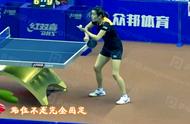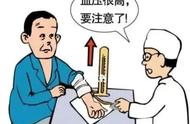
知识梳理
【重点单词】
cheer [tʃiə] v. 欢呼
volunteer [ˌvɔlənˈtiə] n. & v. 志愿者;义务做
put off 推迟
sign [saɪn] n. 标记,符号,标牌
notice [ˈnəʊtɪs] n. & v. 通知,公告;注意到
lonely ['ləʊnlɪ] adj. 孤独的,寂寞的
several [ˈsevrəl] prep. 几个,数个,一些
strong [strɒŋ] adj. 强壮的,强烈的
feeling [ˈfi:lɪŋ] n. 感觉,感触
satisfaction [ˌsætɪs\'fækʃn] n. 满足,满意
joy [dʒɔɪ] n. 高兴,愉快
owner [ˈəʊnə(r)] n. 所有者,物主
journey ['dʒɜ:nɪ] n. (尤指长途)旅行,行程
raise [reɪz] v. 抬起,举起,筹集,征集
alone [əˈləun] adv. 独自地,孤独地
repair [riˈpɛə] v. 修理,修补
fix [fiks] v. 修理,安装
fix up 修理,修补
give away 赠送,捐赠
take after (外貌或行为)像
broken ['brəʊkən] adj. 破损的,残缺的
wheel [wi:l] n. & v. 轮子,车轮;旋转
letter [ˈletə] n. 信件,字母
Miss [mɪs] n. 小姐
disabled [disˈeibəld] adj. 有残疾的,丧失能力的
blind [blaɪnd] adj. 盲的,盲目的,失明的
deaf [def] adj. 聋的
imagine [ɪˈmædʒɪn] v. 想象,设想
difficulty ['dɪfɪkəltɪ] n. 困难
open [ˈəʊpən] v. 打开
door [dɔ:] n. 门
carry ['kærɪ] v. 携带,搬运
train [treɪn] v. 训练,培养
training [ˈtreɪnɪŋ] n. 训练,培训
excited [ɪkˈsaɪtɪd] adj. 激动的,兴奋的
kindness [ˈkaɪndnəs] n. 仁慈,善良,亲切,善意
clever [ˈklevə] adj. 聪明的,机灵的
understand [ˌʌndəˈstænd] v. 懂,理解
change [tʃeɪndʒ] n. & v. 改变
interest ['ɪntrəst] n. & v. 感兴趣;兴趣
sir [sɜ:(r)] n. 先生
madam ['mædəm] n. 夫人,女士
【重点短语】
1.Clean-Up Day 清洁日
2. an old people’s home 养老院
3. help out with sth. 帮助解决困难
4. used to 过去常常......
5. care for 关心;照顾
6. the look of joy 快乐的表情
7. at the age of 在......岁时
8.clean up 打扫(或清除)干净
9. cheer up (使)变得更高兴;振奋
10. give out 分发;散发
11. come up with 想出;提出
12. make a plan 制订计划
13. make some notices 做些公告牌
14. try out 试用;试行
15. work for 为…工作;为…. 效力
16. put up 建造;举起;张贴
17. hand out 分发;散发;发给
18. call up 打电话;召集
19. put off 推迟;延迟
20. for example 比如;例如
21. raise money 筹钱;募捐
22. take after 与......相像;像
23. give away 赠送;捐赠
24. fix up 修理;修补;解决
25. be similar to 与……相似
26. set up 建立;设立
27. disabled people 残疾人
28. make a difference 影响;有作用
29. be able to 能够
30. after-school reading program 课外阅读项目
【重点句型】
1. The boy could give out food at the food bank. 这个男孩可以在食品救济站分发食物。
2. Clean-Up Day is only two weeks from now. 清洁日离现在仅仅两周的时间。
3. He volunteers at an animal hospital every Saturday morning. 每周六上午,他都在一家动物医院当志愿者。
4. Last year, she decided to try out for a volunteer after-school reading program. 去年,她决定去参加一个课外阅读项目的志愿者的选拔。
5.You can see in their eyes that they're going on a different journey with each new book. 从他们的眼睛里你可以看到他们正在进行每本不同的新书之旅。
6. I want to put off my plan to work in an animal hospital until next summer. 我想把我在动物医院工作的计划推迟到明年夏天。
7. Most people today are only worried about getting good jobs to make lots of money. 现在的大部分人只是为找一份能挣许多钱的好工作而着急。
8. You helped to make it possible for me to have Luck. 在你的帮助下,我才有可能拥有“幸运儿”。
【词汇讲解】
1. clean up
clean up意为“打扫”,up为副词,此短语是动副型短语,如果宾语为代词,应放在短语中间;如果宾语是名词,可放于短语之间或两词之后。例如:
Please clean up this street at once. 请马上把这条街打扫干净。
This street is dirty. Please clean it up. 这条街道太脏了,请把它打扫干净。
2. cheer up
cheer up意为“变得高兴,振奋起来”,是“动词 副词”结构的短语。cheer up既可作及物动词短语,也可作不及物动词短语。例如:
He cheered up at once when I agreed to help him. 我同意帮助他时,他马上高兴起来。
Cheer up! The news isn’t too bad.
振作起来!这消息不是太坏。
He took her to the cinema to cheer her up. 为了让她高兴,他带她去了电影院。
【拓展】
(1) cheer作不及物动词,意为“欢呼;喝彩”。例如:
The girls cheered as the famous singer arrived. 当这位著名的歌手到达时,女孩子们大声欢呼。
(2) cheer作及物动词,意为“为……欢呼,高呼”。例如:
The whole village turned out to cheer the hero. 全村人都出来向那位英雄欢呼。
(3) cheer作可数名词,意为“欢呼声;喝彩声”。例如:
We can hear the cheers of students outside the gym. 我们在体育场外就能听到学生的欢呼声。
(4) cheer on意为“为……加油”。例如:
We will have a basketball game this afternoon. Would you like to come and cheer us on?
我们今天下午有一场篮球比赛,你愿意来为我们加油吗?
3. give out
give out意为“散发;分发”,相当于hand out,是“动词 副词”结构的短语动词。例如:
Can you give the drinks out, please?
请你分发一下饮料好吗?
【拓展】give out的不同含义:
(1) give out表示“发出(光、热、声音、气味等)。”例如:
The sun gives out light and heat to the earth. 太阳给大地光和热。
(2) give out表示“用完;耗尽”。例如:
Our food supplies began to give out.
我们存的粮食要吃完了。
4. put off
put off意为“推迟”,是“动词 副词”结构的短语动词,其后可跟名词、代词或动名词作宾语。例如:
They put off the match because of the heavy rain. 因为大雨他们推迟了比赛。
Please don’t put off doing your homework. 请你们不要拖延做作业。
Never put off till tomorrow what you can do today. 今天的事不要拖到明天办。
【拓展】 由put构成的常用短语有:
put away将……收起来 put on穿上;上演
put down放下,记下 put out熄灭;伸出
put back放回原处 put up张贴;搭建
5. notice
notice在课文中作可数名词,意为“公告牌;布告”。例如:
There is a notice on the wall, saying “No Parking”.墙上的告示上写着“禁止停车”。
I’ll put up a notice about the meeting.
我将会贴一张会议通告。
【拓展】
(1) notice作不可数名词,意为“注意”。例如:
Take notice of what they say.
注意听他们说。
(2) notice作动词,意为“注意到,留心,看到”。例如:
Did you notice Jack come in?
你注意到杰克进来了吗?
Did you notice his hand shaking?
你注意到他的手在抖吗?
6. lonely
lonely表示“寂寞的,孤寂的”,带有较强感情色彩,可用作表语或定语;表示“荒凉的,偏僻的”,用来说明地方,多用作定语。
When his wife died, he was very lonely.
太太死后他非常孤独。
The old man lived in the lonely mountain village. 那个老人住在荒凉的山村。
【拓展】lonely与alone的辨析:
lonely作形容词,意为“(人)孤单的,寂寞的”,它更强调一种主观的感觉;alone作形容词和副词,意为“独自的(地),单独的(地)”,它更强调一种客观情况。alone作形容词,在句中只用作表语。例如:
Don’t leave me alone. I will feel lonely.
别留下我一个人,我会觉得孤单的。
7. raise
raise是及物动词,意为“筹集”。常用短语:raise sth. for sb./ sth.意为“为某人/物 而筹集……”。例如:
We raise money for Hope Project.
我们为希望工程筹钱。
【拓展】
(1) raise作及物动词,意为“提升,举起,升起”。例如:
raise one’s hand举手
raise one’s glasses to sb. 举杯祝福某人
raise prices涨价
(2) raise作及物动词,还可意为“种植;饲养;培养;抚养”。例如:
Their family raised much corn.
他们家种了很多玉米。
8. repair
repair是及物动词,意为“修理;修补;修缮(房屋等)”。例如:
He repairs old furniture. 他修理旧家具。

9. imagine
imagine是动词,意为“想象,推测”,后面可接名词、代词、宾语从句、复合宾语,常用于结构:imagine doing sth. 想象做某事。例如:
We can’t imagine whatChinawill be like in the future. 我们无法想象将来中国是什么样子。
I can’t imagine leaving all my friends.
我无法想象离开我所有的朋友。
No one can imagine what would happen next.
没有人能想象出下一步会发生什么。
练一练:
I. 英汉互译。
1. 打扫干净________
2. cheer up_______
3. used to do sth. _____
4. make a difference ______
5. come up with ____ ___
6. 用光,用完________
7. put off_______
9. give up __________
10. 张贴_______
II. 根据句意及首字母和汉语提示写出所缺单词。
1. The old man lived a_______ after his wife died. He felt very lonely.
2. My younger sister looks very sad. Let’s go and c_______ her up.
3. My uncle has a large house and he is the o_______ of the house.
4. They held a concert to r_______ money for Project Hope.
5. She wants to he a _______(志愿者).
6. There are ______(几个) girls in the room. They are talking about the vacation plans.
7. They have a strong feeling of _______(满足).
8. — My alarm clock doesn’t work. Who can help me r_______ it?
— You can ask Tony for help.
9. Please o_______ the window and let the fresh air in.
10. I can’t ______(想象) what the future life is like.
III. 用括号内所给单词的适当形式填空。
1. Staying with animals often gives me a ______(feel) of fear.
2. Tom is the ______(own) of the car. He has had it for two months.
3. He smiled in ______(satisfied) when he won the game.
4. The players are in ______(train) for the next flight.
5. Everybody felt _____(excite) when they heard of the good news.
6. She had _____(difficult) finding the way to the museum.
7. Everybody should try to help the ______(disable).
8. I will never forget your _____(kind).
参考答案
I. 英汉互译。
1. clean up 2. 变得高兴;振奋起来 3. 过去常常做某事 4. 影响;有作用
5. 想出 6. run out of 7. 推迟 8. help sb. (to) do sth. 9. 放弃 10. put up
II. 根据句意及首字母和汉语提示写出所缺单词。
1. alone 2. cheer 3. owner 4. raise
5. volunteer 6. several 7. satisfaction
8. repair 9. open 10. imagine
III. 用括号内所给单词的适当形式填空。
1. feeling 2. owner 3. satisfaction
4. training 5. excited
6. difficulty 7. disabled 8. kindness
重点句型解析
1. They told me stories about the past and how things used to be.
used to do sth. 是一个固定结构,意思是“过去经常做某事”,后面用动词原形,表示过去的某种经常性、习惯性的行为或者动作,并意味着这种动作目前已经不存在。
肯定句:
I used to play with my friends after school.
过去放学后我常常和朋友们一起玩。
否定句:
You didn’t use to like pop songs.
=You usedn’t to like pop songs.
你过去不喜欢流行歌曲。
一般疑问句:
Did your sister use to be quiet?
= Used your sister to be quiet?
你的妹妹过去常常是很安静吗?
there be句式:
There used to be a lot of fishes in this river. 过去这条小河常常有许多鱼。
【拓展】
(1) be used to do something意思是“被用来做某事”,是动词短语use …to do的被动语态结构。例如:
Knives are used to cut things.小刀是用来切东西的。
(2) be used to doing something意思是“习惯于做某事”,to后接动词-ing形式。例如:My father is used to living in the village. 我爸爸习惯于住在小山村。
2. I take after my mother.
take after意为“像……;与……相像”,指由于血缘关系而(在外貌、性格等方面)相似;相当于be similar to,其中after是介词,其后常接名词或代词。例如:
Your daughter doesn’t take after you at all. 你女儿长得一点都不像你。
【拓展】
(1) look like意为“看上去像……”,多指外貌。例如:
You look like my brother.
你和我弟弟长得像。
(2) be like意为“像……”,可指外貌,也可指性格。例如:
What is your sister like?
你妹妹的性格怎么样?
3. I’ve run out of it.
(1) run out of意为“用完,用尽”,相当于use up。例如:
We have run out of paper.我们的纸用完了。
(2) run out“用完了”,是不及物动词短语,其主语通常为表示“时间、食物、金钱等”词;而run out of意为“用完了”,是及物动词短语,表示主动含义,主语一般是人。例如:
You’d better go home before your money runs out. 你最好别等钱花光再回家。
We ran out of coal, and had to burn wood.
我们的煤用光了,只好烧柴。
4. Lucky makes a big difference to my life.
make a difference to 意为“(对……)产生影响”。difference前面可加修饰词,如big, great等;to是介词,其后可接名词、代词或动名词。例如:
Education can make a big difference to the quality of a person’s life. 教育对一个人的生活质量有很大影响。
The accident has made a great difference to his life. 这次事故对他的人生产生了重大影响。
One false step will make a great difference. 失之毫厘,谬以千里。
【拓展】make no difference to意为“对……没有影响”。例如:
It makes no difference to me. 这对我没什么影响。
5. I was excited about the idea of having a dog.
be excited about意为“对……感到兴奋、激动”。例如:
I was excited about going to the zoo. 去动物园令我兴奋。
【拓展】
be excited to do sth. 意为“对做某事感到兴奋”。例如:
Jack was excited to travel there by plane.
杰克对于乘飞机去那里旅行感到很兴奋。
句式精练
I. 根据汉语提示,完成英语句子(每空一词)。
1. 你可以帮助打扫城市公园。
You _____ ______ ______ clean up the city parks.
2. 我希望你的梦想能够实现。
I hope your dream can _____ _____.
3. 谢谢你帮我做家务。
______ ______ ______ _____ me with housework.
4. Lily说她有能力自己完成这项工作。
Lily said that she ______ _____ _____ finish the work by herself.
5. 我的观点和你的相似。
My opinions are _____ ______ yours.
6. 那位教授对我的生活产生了影响。
The professor ______ _______ ______ to my life.
7. 我们得尽力使他振作起来。
We should try to ______ ______ ______.
8. 你认为他会把钱花光吗?
Do you think that he will _____ _____ _____ all the money?
II. 根据要求完成下列各题。
1. He used to live in Beijing. (改为一般疑问句)
______ he _____ _____ live in Beijing?
2. They made a decision to travel abroad. (改为同义句)
They _____ _____ travel abroad.
3. I hope I can pass the exam. (改为同义句)
I _______ ______ ______ the exam.
4. could, help, clean, you, city, up, parks, to, the(连词成句)
______________________
5. He doesn’t know when he should go there. (改为同义句)
He doesn’t know ____ ____ go there.
6. The writer became famous when he was twenty-four years old.
The writer became famous ____ _____ _____ of twenty-four.
7. Please tell me how I can use the camera. (改为同义句)
Please tell me ______ ______ ______ the camera.
8. Can you care for my pet while I am away?
Can you ____ ______ _____ my pet while I am away?
III. 补全对话。
A: Hey, Frank, 1.__________?
B: Pretty good.
A: Did you have fun last weekend?
B: 2. ________. I went to the old people’s house with my friends and have a good time
A: Wow, What did you do there?
B: We helped the old clean their houses and chatted with them. How about you?
A: I just read a science magazine.
B: Oh, really? 3. _________?
A: Hum… it is about the main cause of smog (雾霭) and ways to beat it.
B:Great! But 4 ?
A: We can live a greener life by using cleaner energy to solve the problem, I think. B: You do?
A: Yes, natural gas is a good choice. By the way,5. _______?
B: It’s 7:45 now.
A: Oh, God. Hurry up or we’ll be late.
B: OK.
参考答案
I. 根据汉语提示,完成英语句子(每空一词)。
1. can/could help to 2. come true
3. Thank you for helping 4. was able to
5. similar to 6. make a difference
7. cheer him up 8. run out of
II. 根据要求完成下列各题。
1. Did; use to 2. decided to
3. hope to pass
4. Could you help to clean up the city parks?
5. when to 6. at the age
7. how to use 8. take care of
III. 补全对话。
1. How is it going?
2. Yes, we did.
3. What is it about?
4. How to live a greener life? / How can we live a greener life?
5. What time is it now? / What’s the time now?
声明:内容来源于网络,如有版权问题请联系删除!
,











